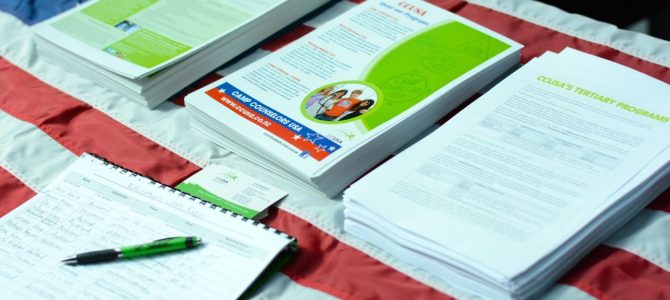
If a foreign nation harbors hegemonic ambitions, tells us technological superiority is key to achieving them, and pilfers our intellectual property to accomplish it, aren’t our leaders duty-bound to do something about it?
Communist China is just such a nation, posing just such a problem for America. Yet the notion that we ought, for example, to harden our schools against Chinese penetration in strategically significant areas seems to vex some of our betters.
Sen. Tom Cotton (R-Ark.) highlighted this issue in an April 26 exchange with Maria Bartiromo on her “Sunday Morning Futures” program. He said that given America has
…trained so many of the Chinese Communist Party’s brightest minds to go back to China to compete for our jobs, to take our business, and ultimately to steal our property and design weapons and other devices that can be used against the American people…I think we need to take a very hard look at the visas that we give the Chinese nationals to come to the United States to study, especially at the post-graduate level in advanced scientific and technological fields.
A recent Pew poll showed that nine-in-10 Americans view China’s power and influence as a threat, with 62 percent believing it constitutes a major threat. Yet Cotton came under fire, with the likes of Obama administration national security official Ben Rhodes perversely claiming it is in part because of China hawks like Cotton that China has advanced its technological capability relative to America.
China is pulling ahead of the US on some technologies bc people like Tom Cotton cut funding for research and innovation and make it harder for the best and brightest to come here. https://t.co/m5EFzy3M2N
— Ben Rhodes (@brhodes) April 26, 2020
Does Rhodes honestly believe America is in a better position technologically versus Communist China because we provided its “best and brightest” entrée to our higher education system for the last decade?
Other blue checkmarks cried racism over Cotton’s remarks, although a nationality is not a race, and the Chinese Communist Party (CCP) is one the world’s most discriminatory regimes. Recently, while its man at the World Health Organization, Director-General Tedros Adhanom Ghebreyesus, sought to deflect criticism of his kowtowing to Communist China over coronavirus, China was engaging in rampant coronavirus-related racism.
China Uses Education As a Weapon
Protecting America against a bellicose, rapacious, and regressive CCP is neither self-defeating nor xenophobic, but eminently sensible. As the Senate homeland security subcommittee noted in a November 2019 report on China’s Thousand Talents Program, China seeks to be the world leader in science and technology by 2050. It is engaged in a whole-of-society effort to achieve it, with an emphasis on military-civil fusion.
This includes the Thousand Talents Program, one of more than 200 such recruitment programs the Communist Chinese regime uses to incentivize people to export valuable research and development fruits to China. Under that program, China has recruited more than 7,000 “high-end professionals”—among them several Nobel laureates—including Chinese nationals.
Chinese students are coming in ever-greater numbers to study in America. In the 2018-2019 school year, a staggering 369,548 such students attended U.S. colleges and universities. Consistent with Rhodes’ view, the Obama administration allowed these numbers to mushroom from 127,628 during 2009-2010, to 350,755 in 2016-2017.
The problem, as the Federal Bureau of Investigations notes in a 2019 report titled “China: The Risk to Academia,” is that:
while the vast majority of students and researchers from China are in the United States for legitimate academic reasons…the Chinese government uses some Chinese students—mostly post-graduate students and post-doctorate researchers studying science, technology, engineering, and mathematics (STEM)—and professors to operate as non-traditional collectors of intellectual property.
Much of this theft concerns knowledge and equipment with both commercial and military applications. Therefore, this influx of students and teachers poses both an economic and national security threat to the United States.
Using Peace Time to Be at War
While most Chinese nationals may be genuinely here to receive an education, the risk remains. As a senior U.S. official told Reuters in 2018, “Every Chinese student…has to go through a party and government approval process…You may not be here for espionage purposes as traditionally defined, but no Chinese student who’s coming here is untethered from the state.”
The litany of Department of Justice (DOJ) indictments related to Chinese efforts to exploit the American academy are a testament to this. When the FBI announced arguably the most prominent of all to date in January 2020, concerning eminent Harvard University professor Dr. Charles Lieber, an alleged contractual participant in China’s Thousand Talents Program, the DOJ also announced charges for two Chinese nationals.
One was Yanqing Ye. Her story illustrates the nature of the threat. According to the DOJ, Ye posed as a student on her J-1 visa application although really a lieutenant in the People’s Liberation Army (PLA). Further, while studying at Boston University’s Department of Physics, Chemistry and Biomedical Engineering, she allegedly completed assignments from fellow PLA officers in “conducting research, assessing U.S. military websites and sending U.S. documents and information to China.”
The extent of Chinese influence on U.S. campuses includes such students and their families contributing an estimated $14 billion in tuition fees and living expenses in recent years. This is to say nothing of the unreported sums of foreign gifts that rival countries such as China have handed to our top educational institutions, which collectively totaled at least $6.5 billion, according to a recent Department of Education investigation.
Nor is it to mention the Confucius Institutes, and other Chinese soft power efforts, which also increase Chinese influence in and leverage over campuses—while providing another avenue for espionage. It is becoming almost something of a cliché at this point, but during the Cold War would anyone have thought twice about granting the Soviet Union access to our educational and research institutions in strategically significant disciplines?
Risks Versus Rewards
American institutions do not exist for the benefit of the world, but for our country. Communist China does not hold an inalienable right to send its students here, especially given the lack of reciprocity. Needless to say, there are no Jefferson Institutes on Chinese campuses.
While it would be ideal if Chinese nationals came to America, fell in love with our founding principles, and spread them to their countrymen, these hopes must be weighed against the reality of China’s repression and censorship, the leverage its regime holds over nationals studying abroad, and its other menacing influence efforts on campuses.
Cotton’s point in this regard, that “If Chinese students want to come here and study Shakespeare and the Federalist Papers, that’s what they need to learn from America,” is well-taken. We do need to engage China in the information sphere, and penetrate its “Great Firewall.” Economic liberalization has not accomplished this.
But we have to ask if the probable benefit of opening our campuses to Chinese nationals—who, regardless of stated area of study, could access materials with security implications—in hopes of it bearing ideological fruit outweighs the demonstrated risks to our economic and national security? Certainly economic liberalization did not accomplish the hoped-for political outcomes. Moreover, is there any evidence our leftist-dominated academies promote the American principles we wish to impart?
Given China’s increasingly confrontational pose, and the mass of evidence showing it is an adversary, should not the burden be on liberal student visa policy proponents to make their case? It would be malpractice not to strongly consider halting China’s plans to exploit our education system by imposing more stringent visa restrictions.
The CCP uses our freedoms and ambitions against us, whether in taking advantage of our openness and benevolence to infiltrate American universities, or capitalizing on our greed to influence our business world, and Hollywood. Why continue any policy that serves the CCP’s desired ends?









